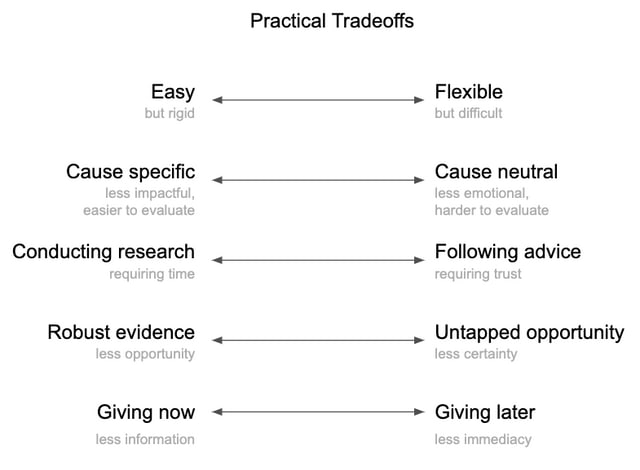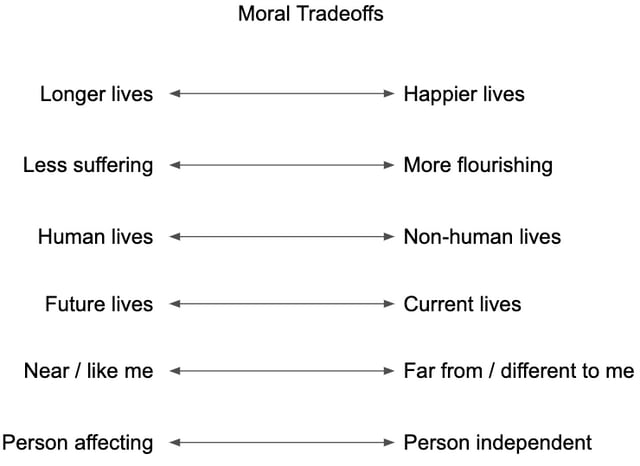I'm working on some training materials for an EA course I teach and articles for Giving What We Can and started trying to visualise the idea of tradeoffs and priorities when it comes to choosing where to dedicate resources. These are both practical (e.g. ease, risk preference) and moral (e.g. future-focus, human-focus).
Here's the ones I've got so far. The list could be endless and I'm trying to single out what the most important ones are. I'm keen to hear what you think is missing as well as which ones you think are most important (especially if thinking of a decision flowchart, or mathematical weightings).


Here's the link if you want to comment directly on Google Slides.

Hi, I love that you are doing this.
1.
One little bit of feedback: I really dislike the idea that being cause neutral is in some way "less emotional". I see myself as cause neutral because I am emotional and I care about how much impact I can have and I want to create as much change as possible. And I know many others who are highly passionate and highly emotional and cause neutral. I think this framing perpetuates the unhelpful stereotype that EA is all about being a cold hard calculation machine (rather than a calculation machine driven by love and concern for others).
2.
Here is my breakdown that I did for myself: https://docs.google.com/document/d/1cYoPBcuV1jgFTli7OIZi6ylXJ8mlQHZePV0rZq1QorU/edit?usp=drivesdk
As you can see it's quite different. Hope it helps.
Could you turn that google doc into a post Sam?
I think it would be valuable to share with others how someone has thought about their morals.
Here is a bunch of tradeoffs that affect animal advocacy. This post provides others in EA more widely. (Apologies, this is kind of the opposite to what you asked for, but I thought it was worth leaving them here anyway just in case it was helpful.)
I would talk about "correlations" more than "tradeoffs." Reducing pollution, for example, will likely lead to lives that are both longer and happier.
I read somewhere that a big failure of the movement to reduce climate carbon emissions is its focus on climate change (which is a contentious issue despite the mass of evidence). However, reducing carbon emissions will also reduce air pollution, which kills thousands upon thousands even in the developed world. The benefits of lowering pollution are obvious, non-contentious, and don't depend on climate models that most people do not understand. So why not campaign for clean air, and get global warming reduction as a collateral benefit?